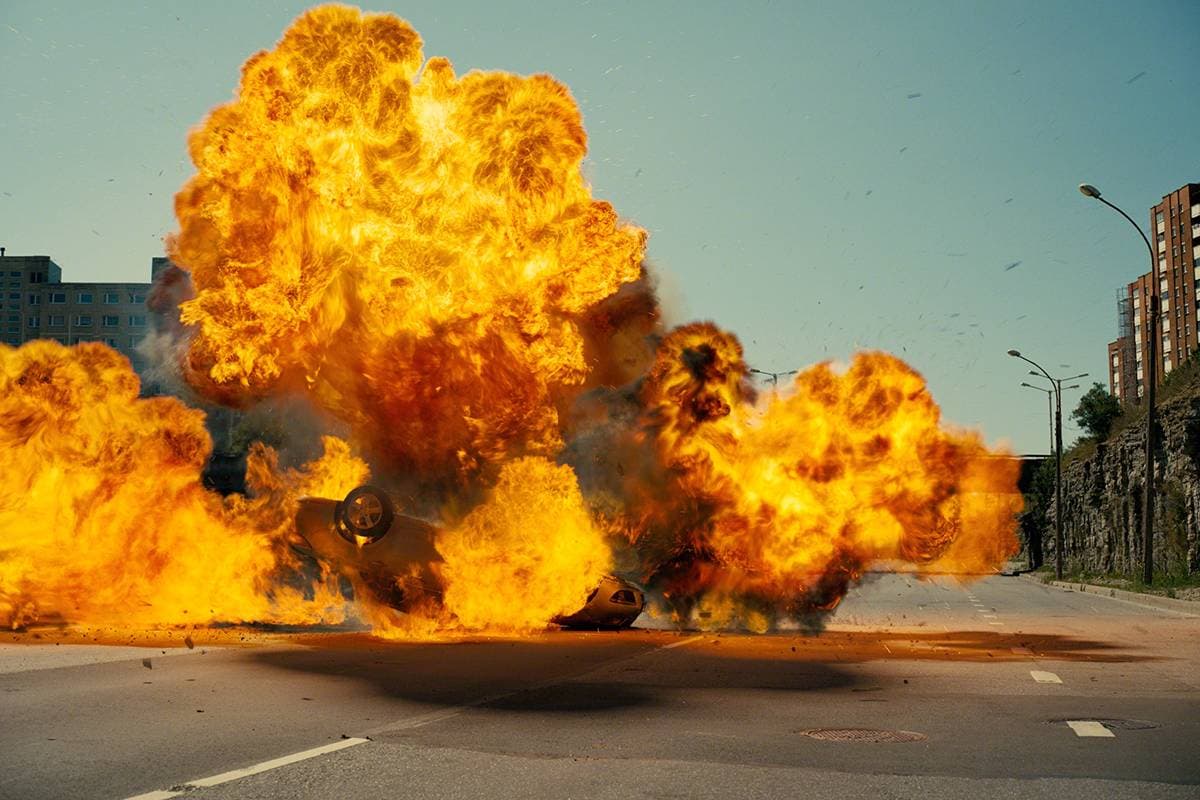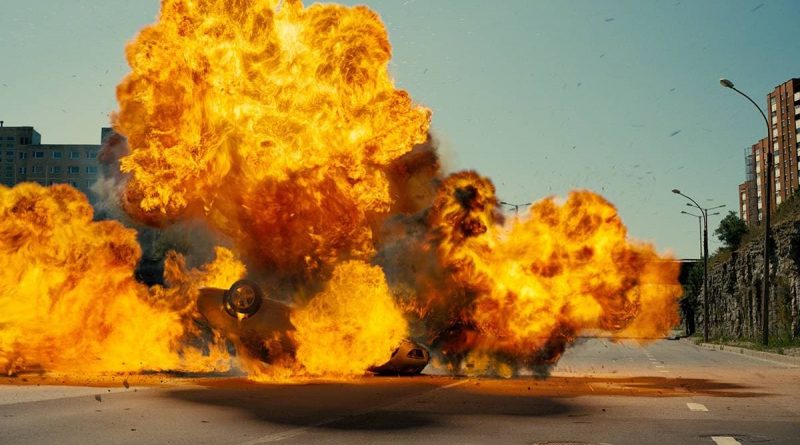The myth of car explosion; why vehicle explosions during accidents are not real?

While many action movies depict scenes of car explosions, cars don’t actually explode.
Watching cars explode in action movies can be entertaining, but transforming cars into fiery balls during a crash or falling off a mountain is one of the most common and scientifically unreasonable events portrayed in movies. With the release of Fast X, the latest installment in the Fast and Furious franchise in May 2023, it’s time to leave the myth of car explosions behind.
According to The Conversation, cars never explode under these conditions and rarely catch fire unless you’re unfortunate enough to be driving a Ford Pinto or a Chevrolet Malibu from the 1970s. Both carmakers cut corners in production, resulting in fuel tanks with poor design that were susceptible to catching fire and often trapping occupants inside the car.
Even when Roman Grosjean, a Formula One driver, crashed at 140 miles per hour (225 kilometers per hour) during the 2020 Bahrain Grand Prix, his car caught fire but didn’t explode.
Gasoline vapor is only explosive in the air (which contains 20% oxygen) and when under pressure. Liquid gasoline is not explosive, but its vapor can ignite.
When you remove the gasoline tank cap, vapor can escape from the tank. However, tanks have a system in which pressure decreases without venting vapor. A full fuel tank is safer than one that is thought to be safer because there is no air, and therefore no oxygen, inside. In fact, even when liquid gasoline comes into contact with a spark, it can be difficult to ignite.
What does an explosion need?
Explosions usually result from a reaction in which one or more solids or liquids react, producing a corresponding amount of gas. Gas occupies much more space than an equivalent amount of solid or liquid (800 times the volume of liquid or solid). The force generated by rapidly expanding gas causes the explosion. The propulsion is added to military explosive weapons and moves by the expanding gas.
Gasoline itself does not explode, but when it is in the form of gas, it can explode if it is hot enough (about 257 degrees Celsius) in the presence of a flame or spark with oxygen.
Imagine seeing someone filling their car with gasoline on a very hot day. You often see a shiny effect near the tank being filled, which is gasoline vapor.
The purpose of the ‘No Smoking’ guideline you see on gas pump or fuel tanker signs is to eliminate one of the three conditions needed to ignite gasoline.
Gasoline is a high-energy compound. These compounds release a lot of energy when they react with other substances. When gasoline comes into contact with oxygen and burns, low-energy compounds (water and carbon dioxide) are produced. The energy difference between these compounds is seen and heard in the form of sound, heat, light, and expanding force.
In order for gasoline to explode (rather than burn), it must be under pressure, in gaseous form, and have sufficient oxygen and an external source of energy such as a spark or flame to start the reaction.
In a car engine, the explosion occurs in the cylinder. The piston compresses the air and gasoline mixture to create the high pressure conditions needed for the explosion. When gas is compressed, it heats up, which is why the tire valve gets hot when filling it with air. As the piston compresses the air and fuel mixture, temperature and pressure increase. The spark plug provides the small amount of energy needed to initiate the reaction. This process occurs thousands of times per minute in a car engine.
Gasoline and diesel only explode when under pressure, mixed with air, and in the case of gasoline, with a small amount of energy in the form of a spark or flame.
Engines compress the fuel and air mixture in the cylinder, creating small controlled explosions that turn the drive shaft and move the wheels.
Diesel is less flammable. Diesel engines use fuel with a higher flash point that spontaneously ignites under pressure, which is why diesel engines do not need a spark plug. Diesel engines also rotate at a slower speed compared to gasoline engines, which is why they have a longer lifespan and are more economical.
When cars collide, fuel hoses often break, gasoline leaks, and the engine overheats. Liquid gasoline can ignite in the presence of air, but it does not explode because it is not under pressure and is in a liquid state instead of a vapor state. In a car accident, diesel or gasoline may sometimes catch fire, but there is no mechanism to create high pressures necessary for an explosion, so the car does not explode.




